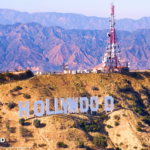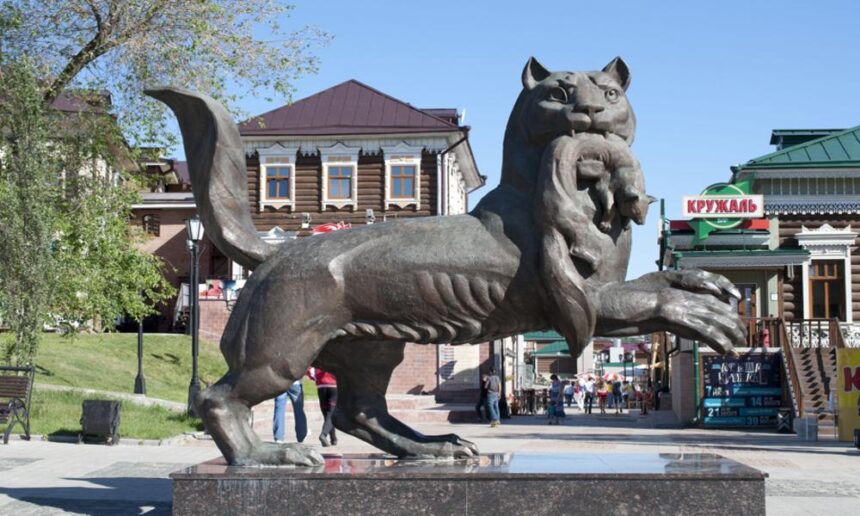Irkutsk is Russia’s largest city geographically near to Mongolia and has close economic and historical ties with us. Currently Irkutsk, which was founded 360 years ago, is home to 588,000 people. When crossing through the city in 1890, Anton Pavlovich Chekhov wrote that Irkutsk is the capital city of Eastern Siberia. Subsequently, the East Siberian Geographical Society was established in Irkutsk to collect geographical, geological, and mineral resources data from the region.
The last government of the Russian Empire operated out of Irkutsk in 1917-1920. Imperial Russian admiral Kolchak, who led that government, was shot to death by the Bolsheviks in 1920. Ninety-four years later his statue was erected. Since the arrival of exiled intellectuals (the Decembrists) who led an unsuccessful uprising against the Russian tsar, Irkutsk evolved into a highly civilized, industrial center.
Mongolians first arrived in Irkutsk to study in 1926. Since then, many thousands of Mongolia’s workforce were trained in Irkutsk. The Angarsk plant, which supplies nearly one hundred per cent of Mongolia’s fuel consumption, is located in Irkutsk, and the largest part of Russian-Mongolian trade traces back to here. Today Irkutsk is an active player in international relations, seeking to establish its position in the northeast Asian economy.
Last week I attended three events organized in Irkutsk and reflected on how they relate to Mongolia.
About Eurasia
Until recently the term ‘Eurasia’, which combines the continents of Europe and Asia, has been used in natural sciences only. Given Russia’s tendency to have multiple economic and political centers, and following the Western sanctions imposed on Russia, demand has been growing to develop more comprehensive cooperation between Europe and Asia. Since 77 per cent of Russia’s territory and 26 per cent of its population is located in Asia, this cooperation is of high importance to Russia. At the Belt and Road Forum in Beijing, in May 2017, President Vladimir Putin stated that Eurasia is neither a chessboard nor a geopolitical field for Russia, but rather it is a place where we all want to live prosperously.
On 21 September, Irkutsk hosted a roundtable discussion under the theme ‘Greater Eurasian Partnership and Belt and Road initiative’, which was organized by a publication called The Eurasian Illustrated Review. The discussion was attended by government officials, private sector representatives, and academics from Russia, Mongolia, and China. Although the mega projects that involve all three countries have taken different names in ‘Belt and Road’, ‘Big Eurasia’, and ‘Steppe Road’, the key concept is the same – establishing an economic corridor through Mongolia.
At a conference named ‘Mongolia-Russia Initiatives’ that took place in June in Ulaanbaatar, the concept was called a ‘super corridor’ that integrates electric power, natural gas, road, and broadband. The parties have all noted that serious talks on how to take this project forward have still not taken place, and no detailed estimations have been completed on overall feasibility and investment matters.
Academic A.K. Tulokhonov said that no progress can be made without passing a special law that provides a workaround solution to the current situation where any outgoing financial transfers from Russia must be approved by Moscow. He also noted that it is unclear today how the investment is going to be made and what goods will be transported if corridors are built.
Today Irkutsk is the third most popular Russian city among tourists, ranked only after Moscow and Saint Petersburg. Most of the tourists come from Asia, with the majority originating from China. However, the public is concerned about the level of economic benefits because Chinese tourists fly in on Russia’s budget airlines and go to Chinese-owned hotels and restaurants. The local Irkutsk newspapers were writing about how timber is being illegally procured and how the efforts against it have not been that successful.
Also, it is twice as cheap to fly from Irkutsk compared to Ulaanbaatar to anywhere in the world. As a result, the Aero Mongolia flight from Ulaanbaatar to Irkutsk is always full.
The Baikal Water Forum
Irkutsk hosted the 2nd Baikal International Ecological Water Forum on 20-21 September. Sergey Levchenko, the Governor of Irkutsk region, announced that this forum, which was organized under the slogan ‘Baikal is the source of life’, would the discuss the most effective ways to ensure the protection and conservation of the world’s largest freshwater lake, Baikal.
Participants had four key themes to discuss in relation to the ecological quality of water and its connection to human health: ecology, culture, education, and eco-generation. The forum was attended by representatives from the United Nations as well as Russian and international water treatment companies who advertised their products.
Lake Baikal contains one-fifth of the world’s fresh water reserves, and it is important to ensure its protection and conservation. It has been five years since Russia closed their cellulose and paper plants that were the biggest pollutants of Baikal. However, they still haven’t finished cleaning accumulated polluted waste.
Since Mongolia made plans to build a hydroelectric power plant at the mouth of the Selenge River, which flows into Lake Baikal, the Russians have been working actively to bring the topic of protection of Lake Baikal under the international spotlight. Mongolia doesn’t have a sufficient supply of electric power, and most importantly, the Eg River power plant would be essential in regulating the operations of the electric power plant. The Russians make the exact same regulations through their power plants along the Angara River, which flows out from Lake Baikal. On the other hand, the water dam to be built 600 kilometers from Lake Baikal would be critical in protecting the lake, because it would regulate the water levels that feed Lake Baikal, depending on whether there is a drought or a flash flood. Russian academics consider that several dams need to be built at the source of Lake Baikal in order to protect the lake from flash floods.
Russia and Mongolia are actively seeking for ways to find the delicate balance between developing using water and ensuring the water is protected.
Mongolia’s space
Irkutsk and Ulaanbaatar have historical ties. In 1920, a group of Mongolians led by D. Sukhbaatar traveled to Irkutsk to request military support from the Soviet Union.
The natural gas corridor, which is one of the so-called super corridors, must go through Irkutsk. This supports Russian-Mongolian cooperation in education and science, which is expected to grow. Last week a Resource Center was established at the initiative of the Baikal State University and its first forum was organized. This project, which was supported by the Russian government and started receiving funding, is intended to establish a database that would help develop Russian-Mongolian cooperation in education, science, and ecology.
The forum was attended by officials from both national and state government organizations, university representatives, and arts and media representatives. The discussion centered around what can be done to reinvigorate cooperation and resulted in deciding to commence projects aimed at having Russian universities be more involved in improving the Russian language proficiency of Mongolian students, celebrating the 90th anniversary of the victory at Khalkh River in 2019, making a historical film, and supporting student exchanges as well as other cultural and sports activities.
This is the summary of the three important forums directly connected to Mongolia and their outcomes.
Most importantly, everyone commented on the fact that Mongolian news is not available in Russian. It goes without saying that there won’t be enough support from society and the business sector to build cooperation unless Mongolian news on its society, economy, and politics becomes available in Russian.
Irkutsk – Ulaanbaatar
2018.09.26
Trans. by B.Amar












